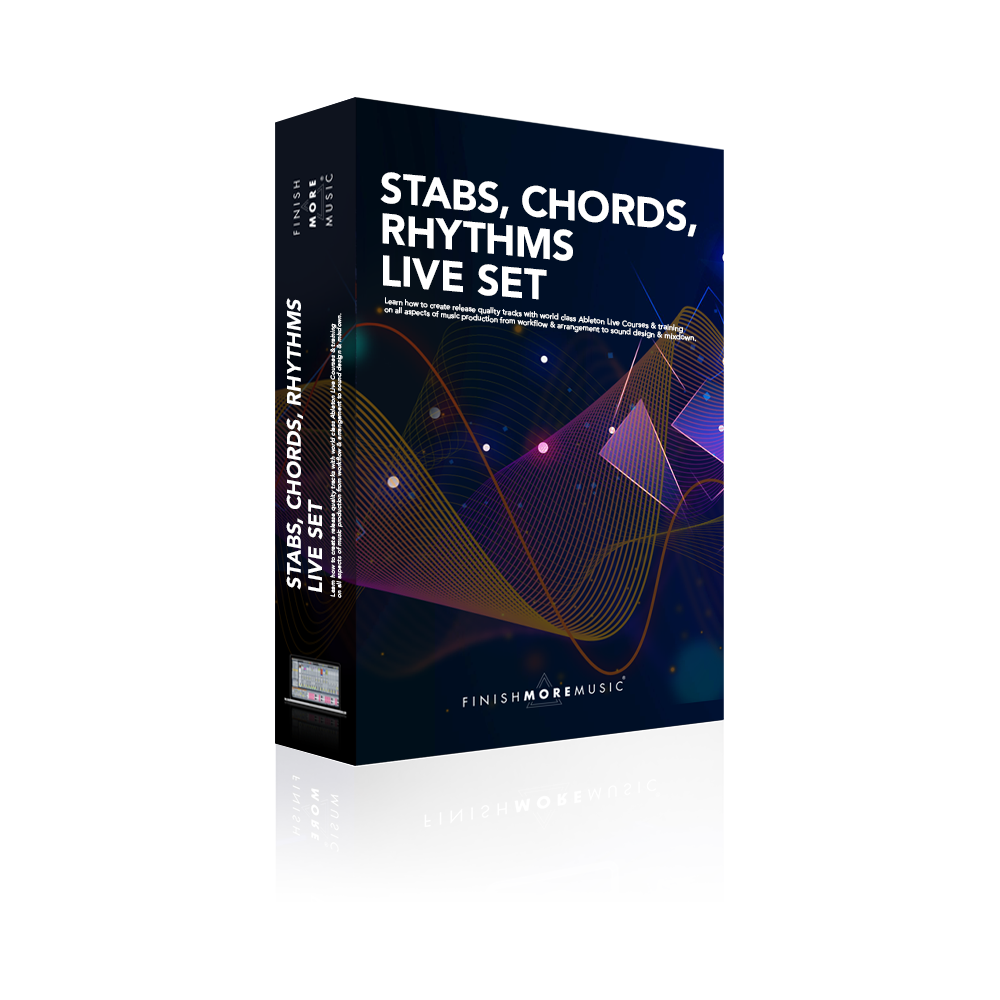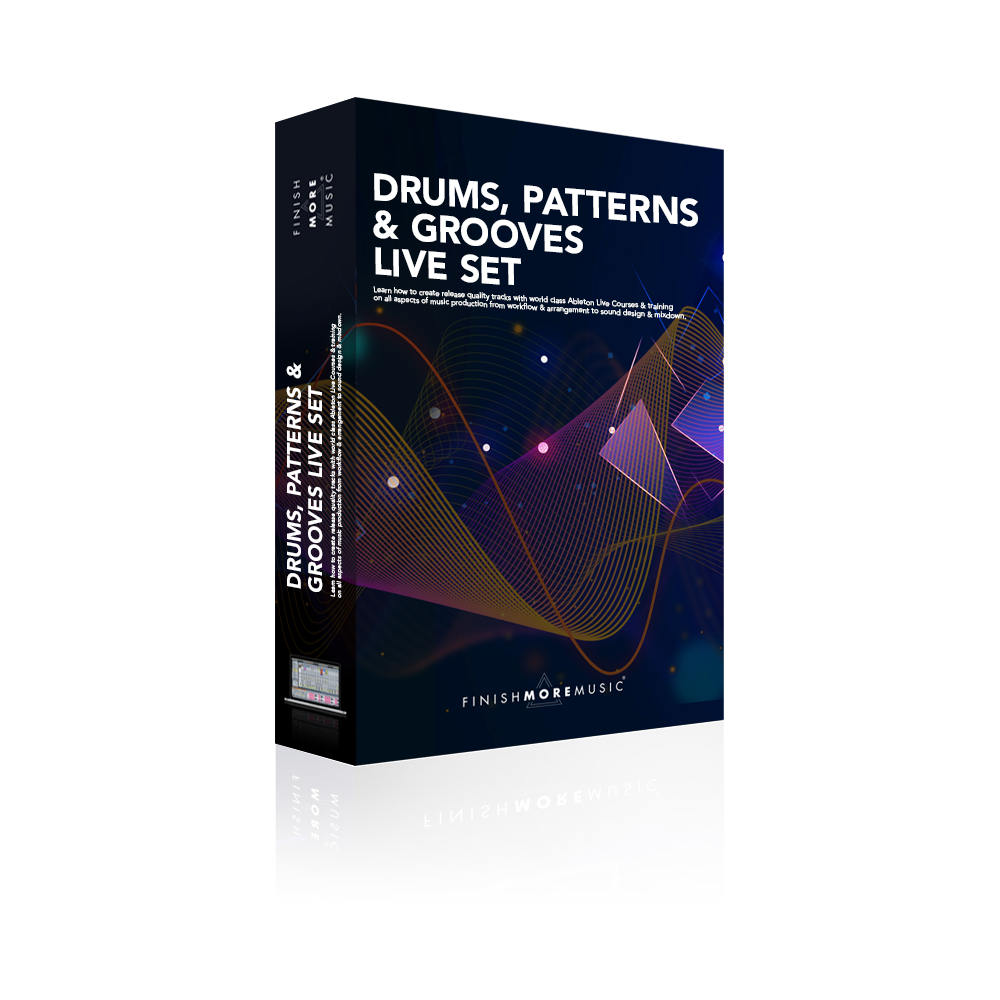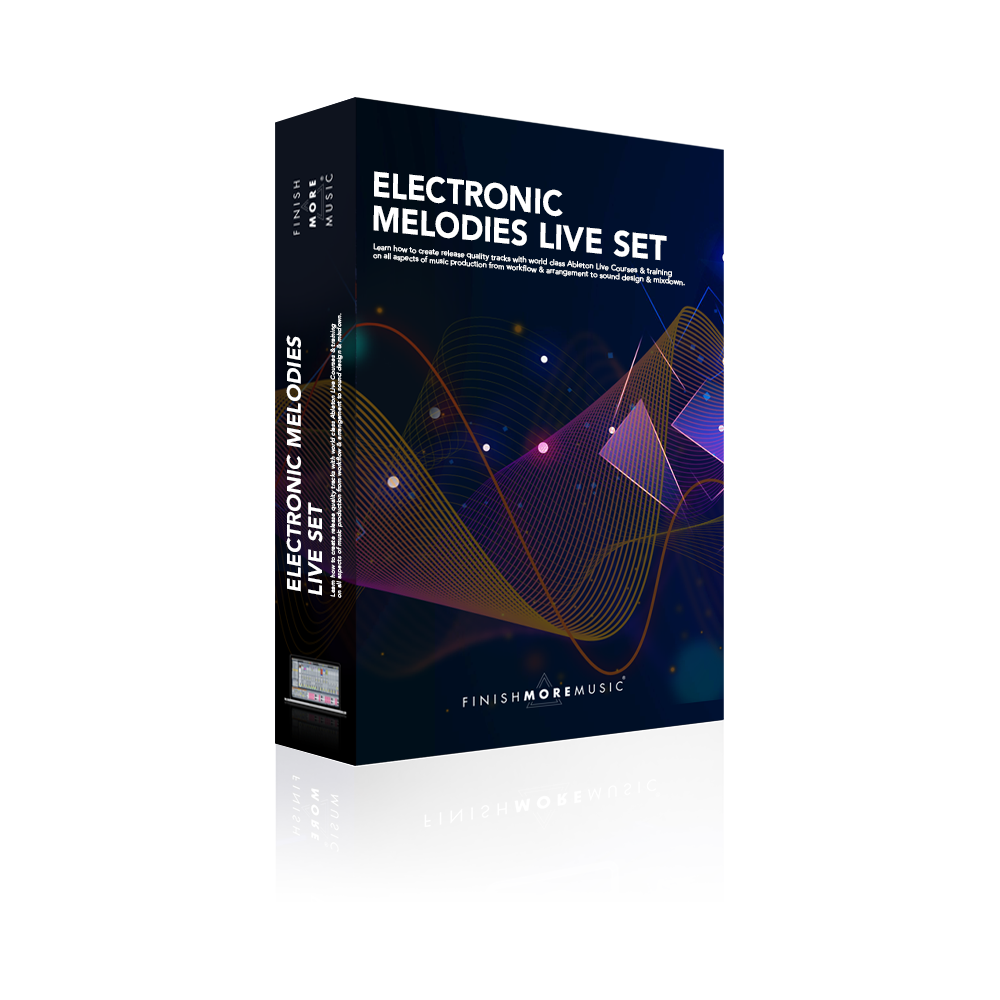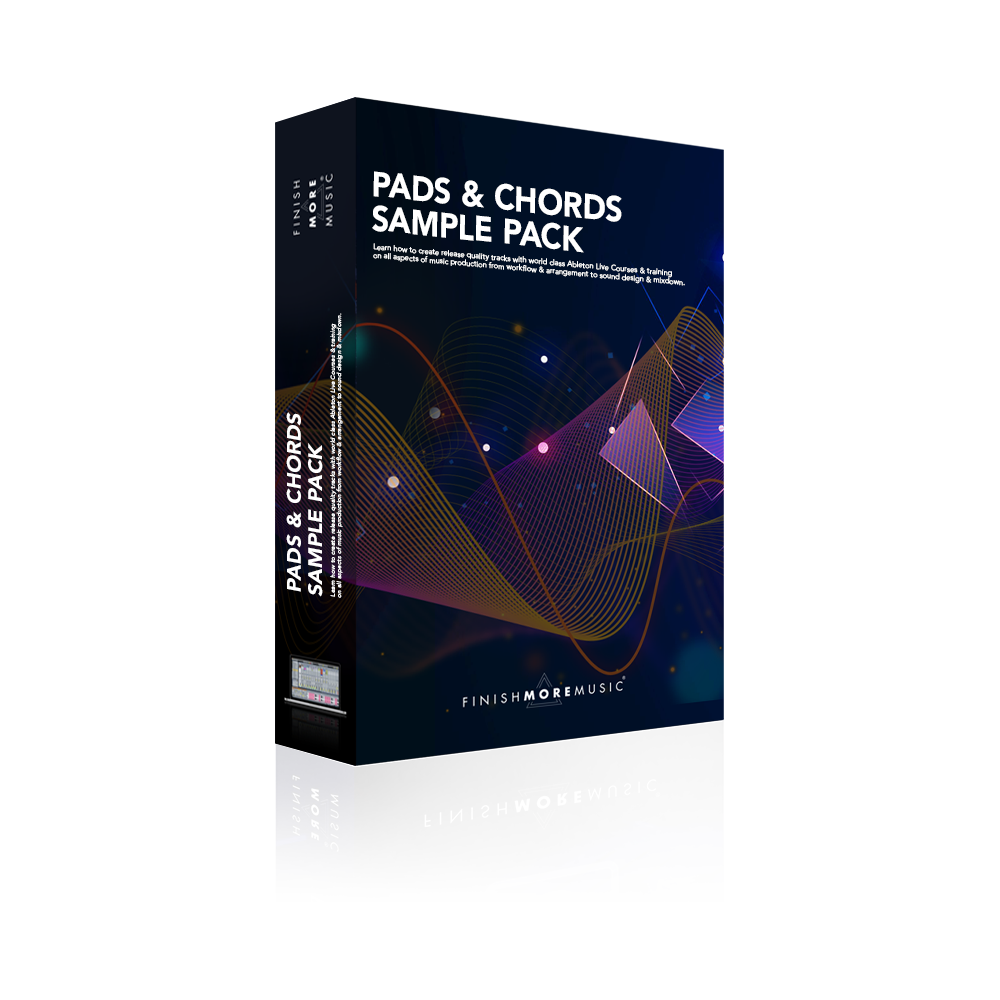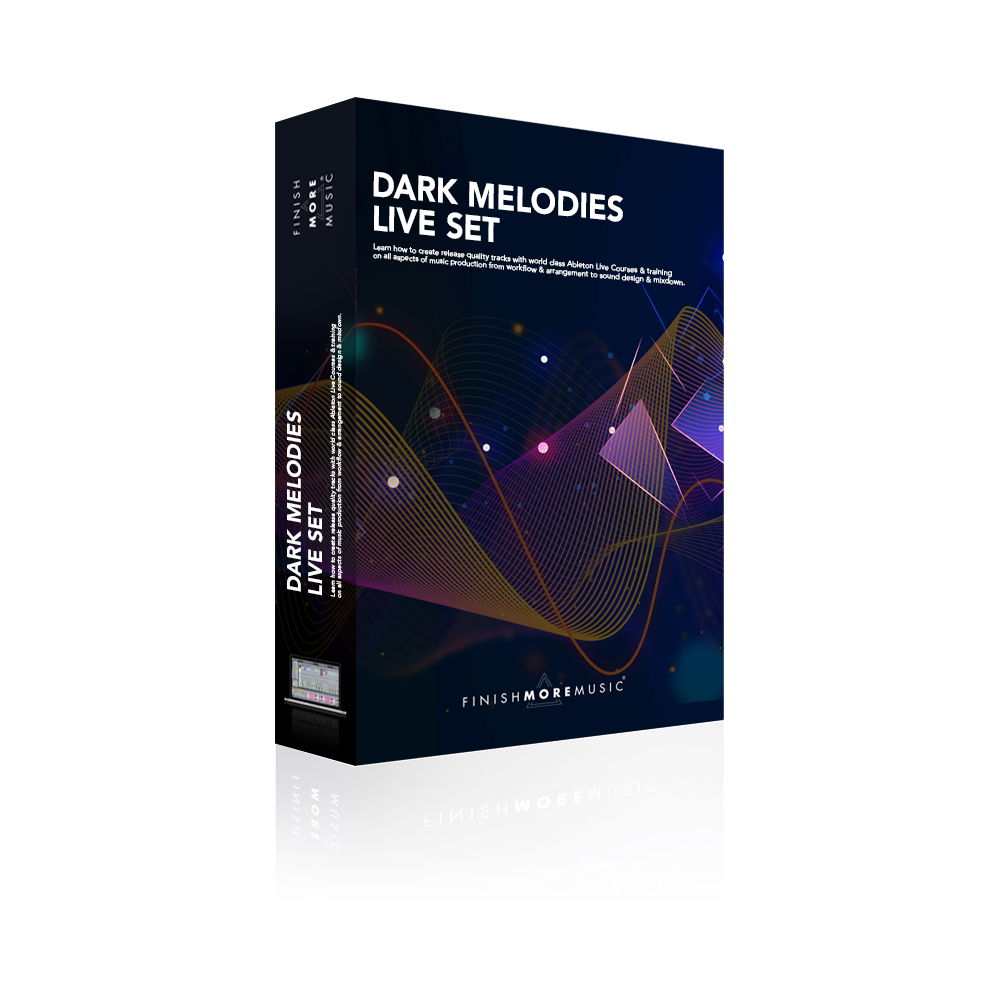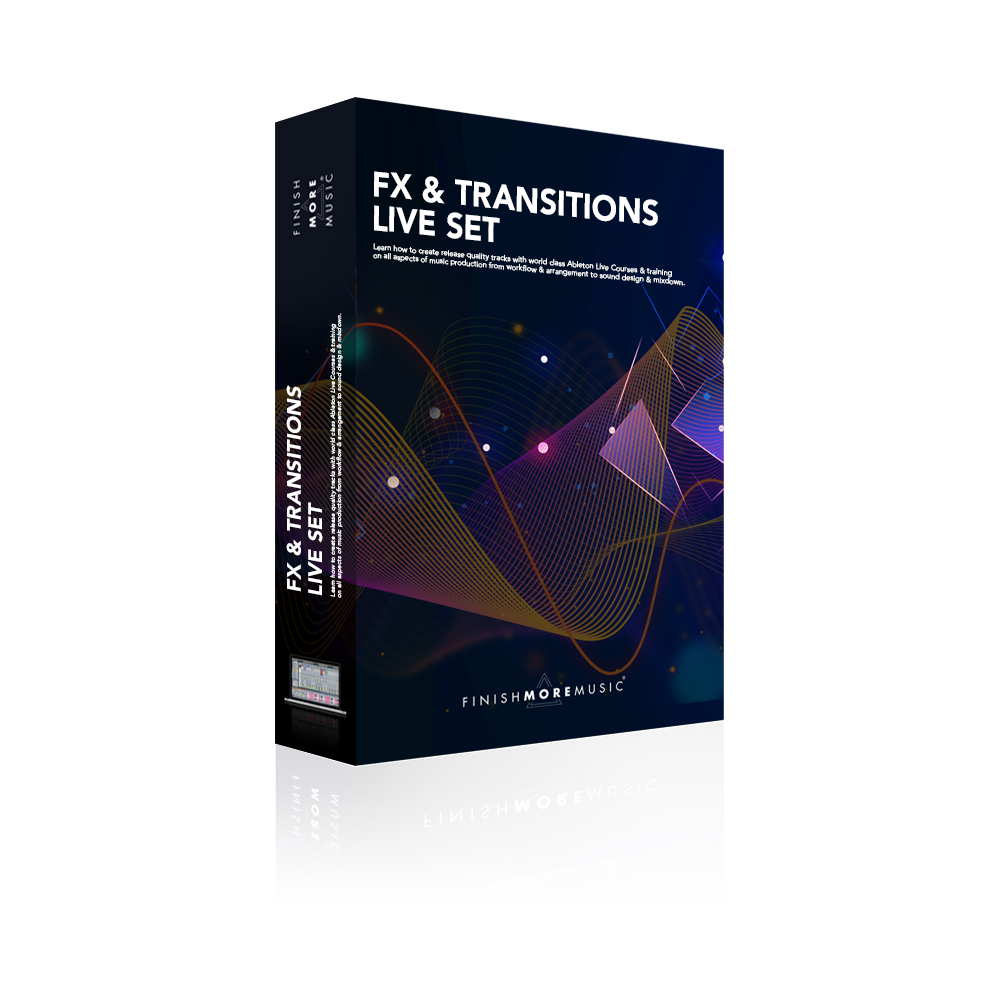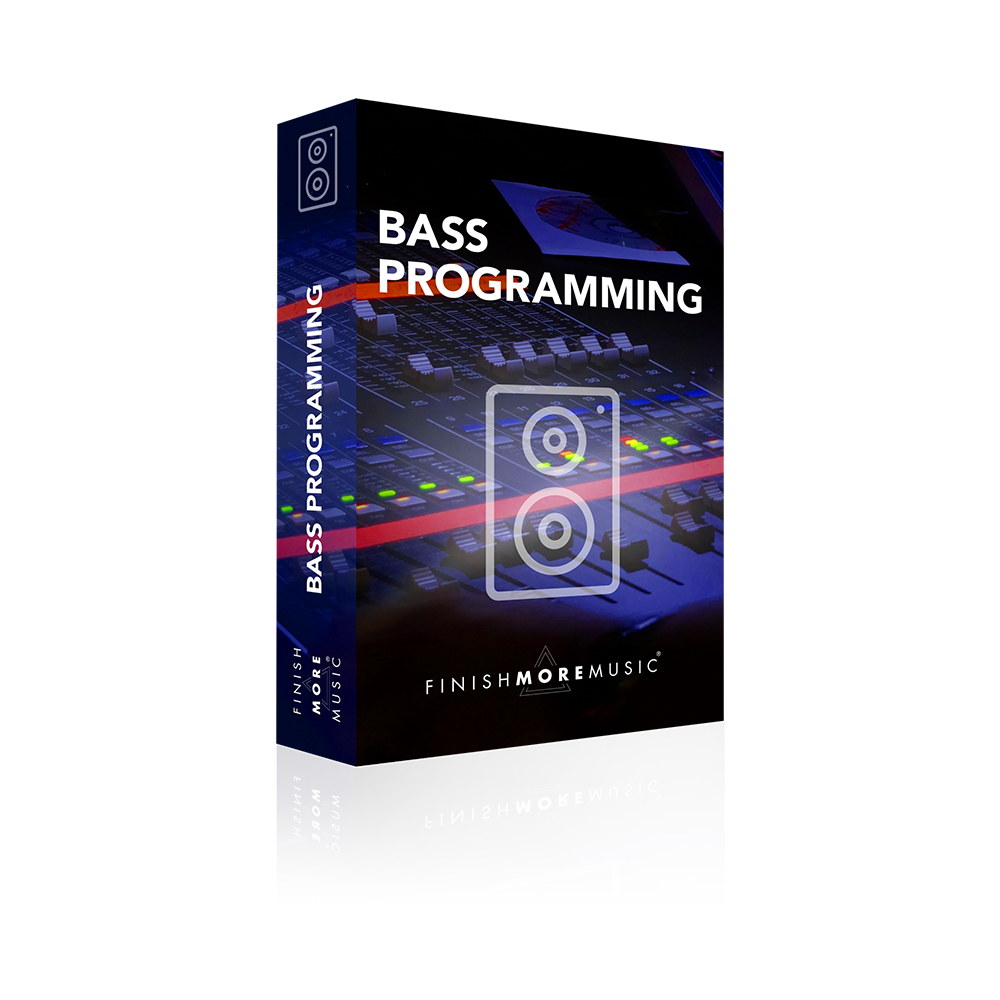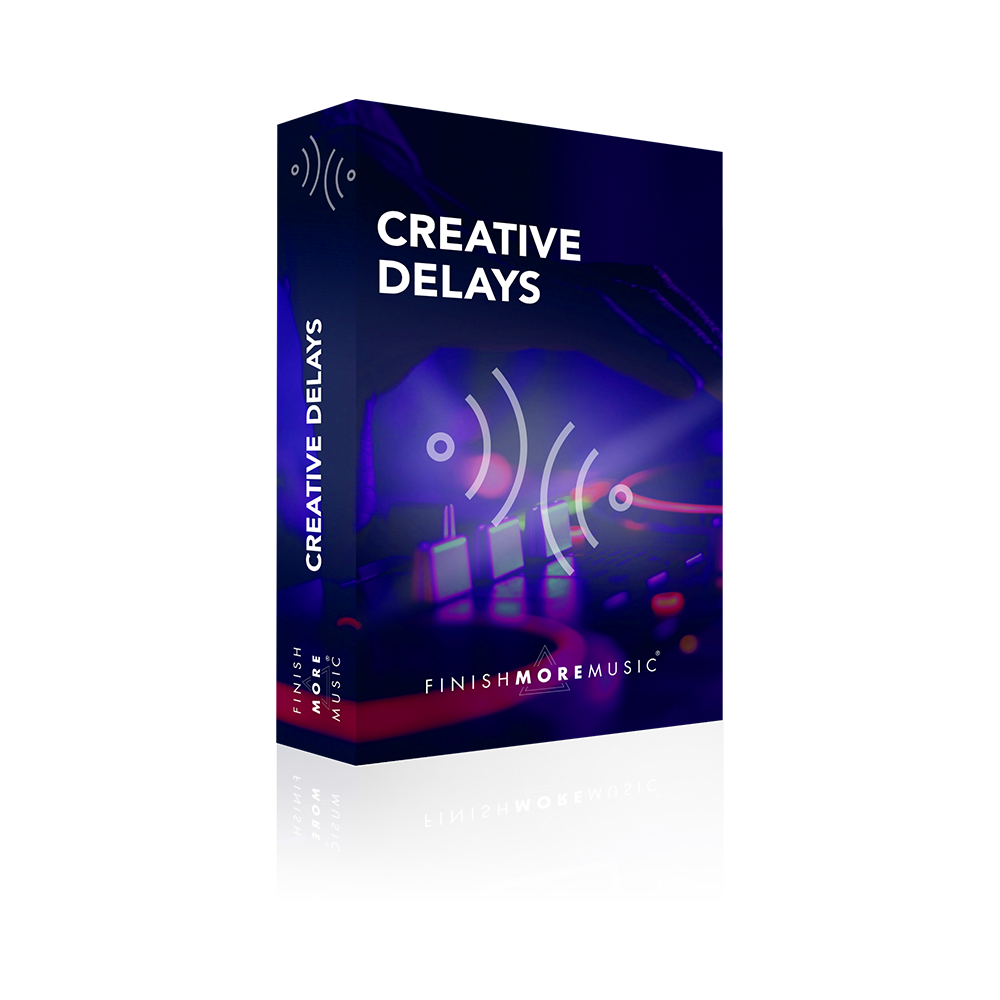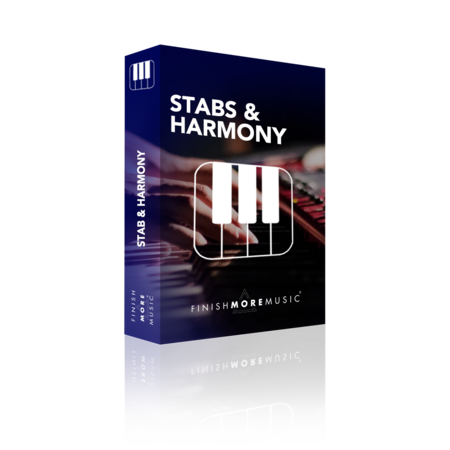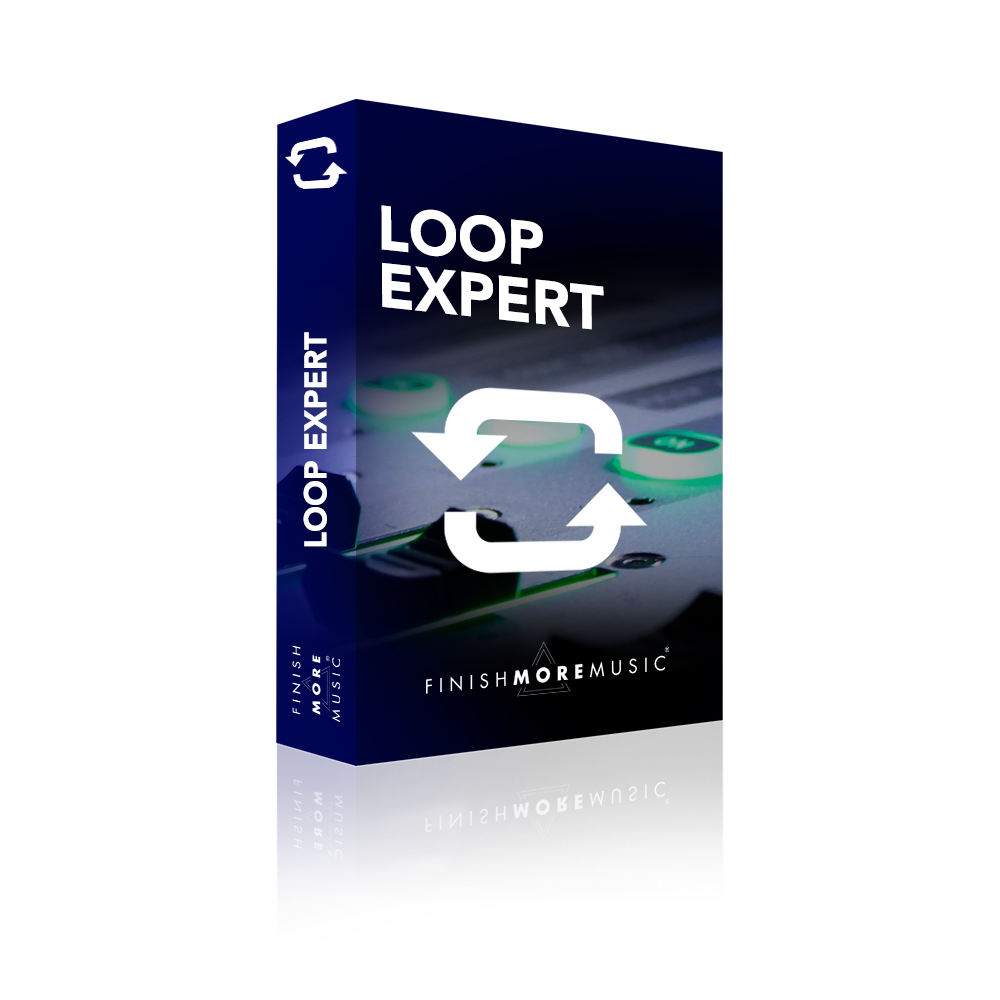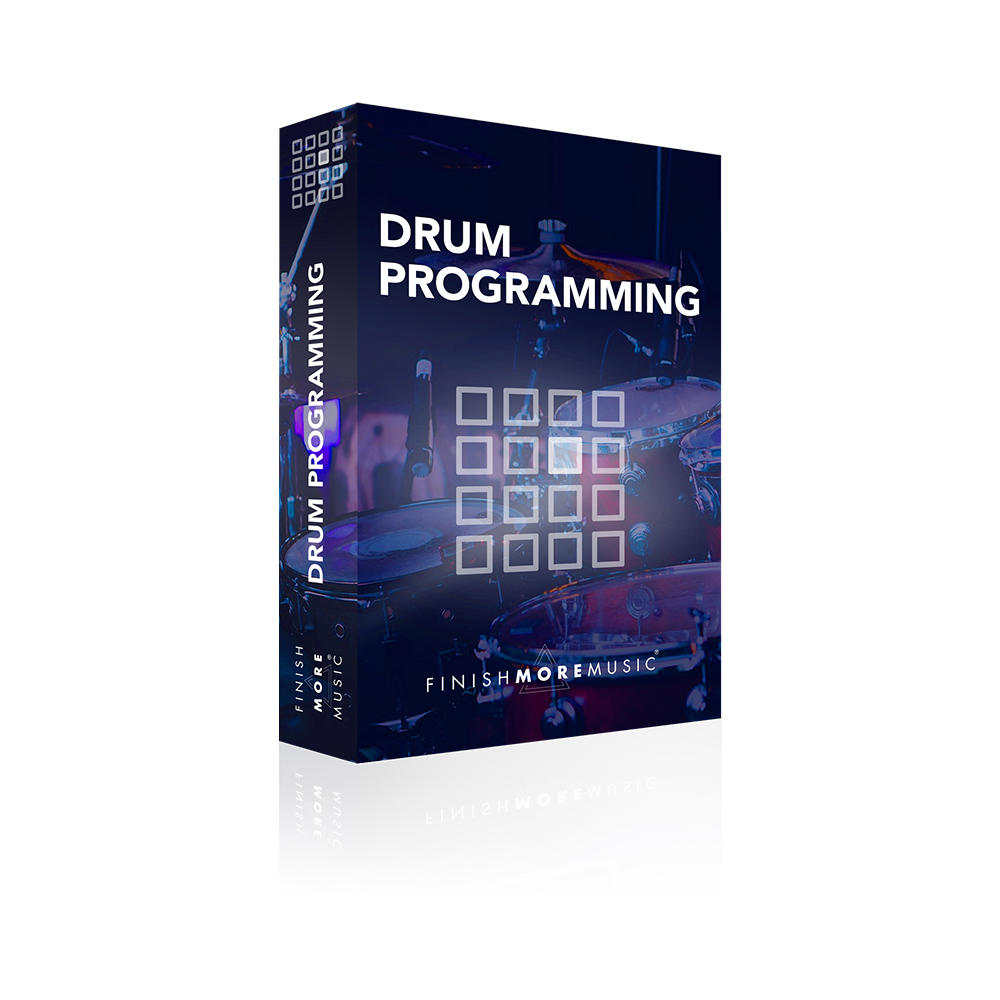FMM092 – Are the odds stacked against you or for you? – Transcript
Keith Mills: (00:02)
Hi, I’m Keith Mills. And this is episode number 92 of the Finish More Music Podcast. And today we’re going to be talking about one simple technique that can make a huge difference towards whether you succeed in music or whether you fall short. Now it’s so simple that you can practice it in just a few minutes, every single day, and the impact it has on your creative journey will be profound. So you get to choose whether the odds are stacked in your favor, or whether you face a constant uphill battle. Curious to know what this is you should be. Let’s get stuck in.
Keith Mills: (00:49)
This is the Finish More Music Podcast, a show for underground dance music, producers who want to finish more and better music, and to share it with the world. My name’s Keith Mills, every week, we’ll dive into the mindset creative strategies that will help you to move further, faster along the music production journey. Hello, and thank you for joining me for another episode of the Finish More Music Podcast. So I hope you’re well, hope you’ve been
Keith Mills: (01:27)
Having a great week. You got a lot lined up. We’re smashing it out. The park, this coming week in FMM, we’ve got Jody Wisternoff coming in, which we’re all super excited about for a live master class for the community. So we had Nick Muir last month opened up a couple of these projects, one with the mighty John Digweed, and one of his solo tracks that was absolutely blowing it up. And the community loved it like a complete open book. And we’ve got the same now with Jody Wisternoff. So one half a way out Western, you know, a guy is absolutely smashing. It got loads of tracks out on a junior at the moment is going to be doing the same opening up his music and sort of given an x-ray vision of how his music works. And I think more importantly, a lot of the time he’s creative process, how he thinks about music, all of this good stuff.
Keith Mills: (02:17)
So that’s super exciting. And then on the Monday and Tuesday of next week, we’ve got our accelerator days for my high level coaching program, FMM Plus. So that’s two full days online doing a lot of kind of teaching skill development level in the guys up massively as a great runway into 2021 for them. And then there’ll be joined by the new members because we just finished assessing and offering places from the applications for joining my mentoring program for next year. And I’m absolutely delighted by the people that we’re going to be working with next year, who had joined in the group, really intimate group of music, producers, who I worked very closely with and the results that the guys got this year were literally off the charts. So describing them as you know, couldn’t have dreamed of this kind of progress a hundred times the progress I expected, all of those things.
Keith Mills: (03:12)
So it’s mega exciting age to have a bunch of those guys staying on to go again next year, where they’re going to end up, you know, so exciting, but also to be taken on some new guys as well. Absolutely fantastic. So as you can tell, I’m absolutely buzzing with everything that’s going on at the moment. And that’s going to inform this podcast and the episode along with the fact that last week’s episode, if you didn’t check it out, kind of on the social media dilemma was a bit heavy on the doom and gloom side. No doubt about it was a very serious podcast, a little bit controversial, I think as well, if you haven’t checked that out and you are a social media user, I do recommend it because there’s a lot of lessons in there that can be impacting you without even realizing it and kind of messing up career opportunities, collaboration opportunities, and so on in music for you.
Keith Mills: (04:09)
But anyway, let’s keep this focused on this episode and we are going to be talking about something that if you spend just a few minutes every day, doing it on this small task, it’s going to make you happier, more optimistic, more likely to set goals and follow through with them more resilient against setbacks. So if I told you that this just took a few minutes a day, you’d be interested, right? Well, it does. It’s super, super cool. And it’s not just about creativity. It certainly can be applied to that. And I thoroughly recommend applying it to your music outlook and your creativity, but like so many things that we talk about on this show, creativity is a part of everything that you do. Great, great quote for you, how you do anything is how you do everything. So we talk about this a lot. If you drop the ball in looking after your health, that’s going to affect your creativity.
Keith Mills: (05:10)
If you’re not leaning into your creativity and feeding your soul, if it’s a part of who you are, it will affect all the other areas of your life. You know, it affects how you show up in your relationships. It affects how you go to work and how you feel about yourself. Everything is interlinked in our lives and this particular thing, which is showing gratitude. Sounds really simple, but I’m going to talk to you about how powerful it is. This permeates through every single aspect of your life and your being, and will massively lift up your creativity as a result, because it’s not just focused on this one thing. It’s focused on everything. So it’s greater than the sum of its parts. So here’s the main point. The bottom line, the thing to away from this episode, if you regularly show gratitude for everything, everything in your life, then you cultivate optimism and resilience, optimism, and resilience, because gratitude helps us to take action.
Keith Mills: (06:18)
Because when we’re optimistic, we’re likely to believe that we can achieve more. We’re likely to follow through. We’re likely to set more goals. Think about it. If you have a positive outlook, you’re likely to set more goals and take action towards them. And when there are inevitable setbacks, because remember the universe is a place of duality. Sometimes things go smoothly. Sometimes they get an a, not when things are in a knot, then you’re likely to see the way forward. More quickly, bounce back more quickly. You don’t just see the cloud, the darkness, the problems, and sit there and soak. You see the silver lining. You see the opportunity in it. You have positivity. You infused with energy to move forward and gratitude will give you so much of this. The more you practice noting the good things in your life, the more you notice, the good things in your life. Tony Robbins, great quote for you. Scribble this one down for sure where attention goes, energy flows.
Keith Mills: (07:31)
The more you see opportunities, the more you look for opportunities, sorry, the more you see opportunities. So it’s a choice you choose. Do you want to be a glass is half full kind of a person or a glass is half empty. Do you want to be a person where life happens to you or a person where life happens for you? Now notice the difference in how this makes you feel, whether you feel lighter or heavier, depending on how you look at this. If you say, Oh, this thing’s happened to me today, how does that feel versus, wow, this thing happened for me today. Now your use of language and how you think about these things is your choice may not happen immediately. You know, sometimes things happen and we’re like overwhelmed by it. But very quickly, we get to a choice point of how we’re going to look at this.
Keith Mills: (08:32)
We can be grateful or we can operate from the reverse of that, which I think is entitlement. It’s life owes us something. It’s the reverse of being thankful, right? It’s like getting a gift when you get a gift from someone. I imagine. Imagine you say, wow, thank you. Maybe even if it’s a gift that you weren’t mad or thank you so much for this. Imagine if instead you were like, well, you know, I’m your son or your daughter or your brother or whatever it might be. I’m your partner. So you should have bought me a gift. Of course you should imagine operating from that place. Well, that’s what we have the choice to do with everything in our life. Be grateful for it. See the opportunity in it or feel that it should have gone my way. Everything should go my way. And as we know, when we think, when we operate from a place of life, owes us something, people are something the world owes us something. We don’t take responsibility. The government owes me something. This owes me something that owes me saying, we give our power away. We give our responsibility to it. So you can absolutely think of a time that this has happened to you, right? Life’s not fair. This should have gone my way guaranteed. And when that happened, did you spring into action and fix it? Or did you ruminate and soak and waste time? This should have gone my way. Life’s not fair. This happened to me.
Keith Mills: (10:15)
What happened? Did you spring into action? Did you fix it? Did you feel good? Did you feel strong, empowered, or when you act like that, do you feel weak, upset, stagnant? You don’t move forward. You ruminate, you roll about in it for a while. When you operate from this place of like, everything happens to me. Oh God, I can’t believe this has happened to me again. What else? Crops up. What’s the point? What is the point of me doing this? Self-Sabotage and do you blow it out of proportion? Do you try and make it as big as possible to justify it? Classic example of this? And I guarantee this has happened to everyone. My mum is the master of this. Like you’re in the kitchen. You think you’re having a bit of a bad day, everything’s happening to you and you spill something. I don’t know.
Keith Mills: (11:10)
Maybe the coffee granules go over that, that sort of things, a classic, right? And you rage about it. Oh, dang. You blow it all out of proportion. You make it a huge deal. And then incomes you your partner or more likely, it’s a mum thing. A mum comes in, you’re looking at the carnage, making out like it’s world war three. It’s the worst thing that ever happened and incomes your mum. And they see the opportunity to spring into action and not just clean it up, but clean it out faster and make the kitchen look even better and do it in like two minutes. And you stand back watching it, realizing that you are blowing this thing up. That was just nothing you just made to realize how silly and daft the whole thing has been because they just come in and pop up, leave it to me and look at that.
Keith Mills: (11:55)
See what you’re worrying about when you change the way you look at things, the things you look at change, right? One person just sees an opportunity to get that fixed. No problem at all. And another person who’s caught in it and having one of those days, one of those wards, that point nothing ever goes my way, life happens to me. Days makes out like it’s a huge deal. So if you’re having one of those days, you might say, there’s no point going into the studio. Nothing goes my way. So why put the effort in, and you expose yourself doing this by generalizations. This always happens to me. Nothing goes my way. These are called generalizations, right? They’re everything. They’re all encompassing. They’re not just this single isolated event they’re blown up into the world is against me, the whole world. Everything always, nothing goes my way. So these are the things for us to watch out for. And you can see how, when we’re operating from this in place, this place of entitlement and not gratitude, how it throws a cloud over everything that we do, including our creative work, including the things that support our creative work may be our relationships. So this is a brilliant opportunity to take a long, hard look in the mirror. Are you a Moana, a complainer? Are you a glass is half empty kind of a person?
Keith Mills: (13:31)
Or are you that sometimes, maybe you that more than you would like to be that, does it create arguments in your life when you behave like that? Do you want to stay like it? Or do you want to improve it? Good questions to us. Self-Reflection it’s okay if you think. Yeah. You know what? I have a bit of ammonia gear. That’s all right. If you want to change it, that’s all right, too. We don’t need to beat ourselves up about it. We just say, wow, look, I’ve brought that into my awareness. There’s an opportunity to change. And in my experience, gratitude falls into your 80 20, the 20% of things that we’ll get 80% of the results. And the fact that actually only takes a few minutes a day. I think we can, 80 20, the 80 20 and safely say, this is in the 4% of things that will get you 64% of results in your life.
Keith Mills: (14:24)
It’s gotta be worth looking at right. Gotta be worth pursuing. So let’s look at some of the benefits of practicing gratitude as I see them. I’m sure there’s a great many more than this. First of all, it makes us notice more of the things we already have and that’s worth thinking about because when we show gratitude, we just see so many of the great things that are already around us, that we take for granted. That may be, we just think we’re entitled to on a daily basis, but there are just so many incredible things that you have so many resources that are around you light now to get you from where you are, to where you want to be. Black Friday is classic for this stuff, right? We’re always looking at what else do I need? What else do I need? If you are practicing gratitude regularly, you’d probably see more of the things you’ve already got. I bet you bought stuff. And then realize not too long after having it, you’ve already got something that does a job. Now, if you were paying a lot of attention to all the amazing things you already have, you might not need to go out hunting for anything new quite so frequently.
Keith Mills: (15:31)
The second thing is it fills us full of energy to take on the day. I mean, who wouldn’t be energized, looking at all the great things in their life. And if you do it early in the morning, boom, you’re full of energy and optimism to take on the day. And then I mentioned this thing about resilience and turning negatives into positives. And this idea that when you change the way you look at things, the things you look at change. So when we have something that’s a setback, we can look at it and ask yourself, well, is it really because two different people will look at this through a different lens. One person will look at this as a setback, another, an opportunity to grow one person, a set back another, an opportunity to create a process. So this is a great thing. Ray Dalio, billionaire talks about this a lot, like fantastic, fantastic book.
Keith Mills: (16:28)
I can’t remember the name of his book now, but it’s a bit of a heavy read. As in it’s densely populated with great stuff. So it’s quite a lot to get through, but he talks a lot about embracing problems and challenges. And as long as you see them as an opportunity to create a process in which to overcome them again in the future, you’re onto a winner. And so we do that a lot, but FMM, you know, things crop up that we don’t expect. And we say, well, okay, how do we turn it into an opportunity to learn, to grow maybe to actually get something better out of this than we ever thought we would. So let’s be grateful that this opportunity has come up. And then how do we turn this into a process so that when this comes up again in the future, we’ve documented how to easily overcome it, how to just move past it, no problem at all.
Keith Mills: (17:20)
So is it a setback or an opportunity, a setback or the, the the opportunity to create a process to grow? Is it a failure or an opportunity to learn? Is it something that SAPs energy for me or something you gain energy from, but think about it. If you go into same thing in our heavy is, and it’s a chore, it will SAP your energy, right? Just by the way you’re looking at it. But if you look at it as a great thing to do, you’re going to gain or at least sustain yourself. So a good example of this is the member’s event that we have inside of FMM. So this is an opportunity for our members to upload their music. And when they upload their music, they give feedback. It’s one of the requirements to their fellow members and it is not throw away, nice tune, brave stuff.
Keith Mills: (18:10)
It’s something that takes awhile. You know, we provide full training on it. It’s going to take 30 minutes an hour, sometimes even more to write in depth, positive, actionable feedback that really boosts a fellow member. And they really grow from it. And people love the members event, but there’s two ways of looking at this. You can look at this and go like I’m going to upload my music. Cause I want some feedback what’s in it for me. Or you can look at it and go in and go like upload my music and I get to help people gratitude. I get to help other people. So imagine sitting down saying, Oh, I’ve got to get through this feedback now. How does that feel versus, Oh, I get to help somebody else grow, man. I get to boost somebody up today in the next hour, I’m going to listen to some cool music.
Keith Mills: (19:04)
I’m going to pick somebody’s track. And I get to really think about how I can help this person. Notice how that feels. One takes your energy, right? One boosts it, same thing, same thing is going to happen, but one is going to boost and one is going to SAP energy. And guess what? The quality of that feedback will be like if you’d go at it from a place of being lit up. So one of the things I show gratitude for every single day is that I’m grateful because I have an opportunity to make people feel special. So most of us do my role in particular as a coach and a mentor with a community of people that I get to work with is I have an abundance of opportunities to make people feel special. So when I approach the day like that, imagine how I feel.
Keith Mills: (19:57)
Do you think I go into interactions with people looking to go the extra mile? Like how can I really make this person feel good and make them feel special and help them to grow instead of doing just enough to tick helping that person off of my list? What, what a different kind of outlook, and that all comes from just a few minutes of gratitude every day. And the final thing is it dissolves anger, anxiety, depression, and not talking about clinical depression, just, you know, feeling down, feeling like there’s a bit of a cloud over that stuff dissolves. And I first read this in a book by a guy called Michael Hyatt. And he was talking about the fact that you can’t possibly feel like anxious and down and worrisome. If you truly are feeling grateful for the things that you have. And I’ve found that to be true, but you do have to really feel it as I’ll touch on in a second.
Keith Mills: (21:00)
Here’s the deal with this stuff? Like so many things we talk about it’s self-fulfilling and it’s backed by science. So your RAs reticular activating system, this is a part of your brain that notices things. It’s a part of your brain. If you’re walking along the road, reading a greeting, your phone, and you got to step out in the road, it spots the dangerous spots, the car, even though you didn’t see it is in the periphery of your vision or the faint sound of it, whatever it might be, boom, it’s on it for you. And it’s also the bit that matches up with a Tony Robbins quote, where attention goes, energy flows. The more you look for opportunities, the more you see opportunities, the more you look for problems, the more you see problems. That’s why we say someone’s our glass is half full kind of person.
Keith Mills: (21:52)
We don’t say sometimes they are. We say, Bob is a glass is half full kind of person. Why? Because the person who looks for opportunities consistently seized them. The person who looks for problems consistently sees problems. You either look for the cloud or you look for the silver lining and here’s this inaction, this RAs in action in a non fight or flight kind of moment ever gone to buy something like a car. And you decide, this is a car. I want you start looking at it everywhere. Right? You’re on all the websites. You’re looking at the car looking at, Oh, wow, how much will it cost? And dah, dah, dah. And you start feeding it into your mind. Then you go out and you notice that car everywhere. There’s more of them on the road than you’ve ever seen before. They’re like everywhere. Well, that’s this RAs in action, right?
Keith Mills: (22:50)
That’s this part of your brain that is now like totally zoomed in on this thing. Can’t stop thinking about it, seeing everywhere, noticing it absolutely everywhere. And that’s what gratitude will do for you. You’ll notice the things that are good in your life and the opportunities. Now, in case you haven’t guessed, I’m huge on gratitude. I fill out a journal every morning. I write down things I’m grateful for. I bring it into my team. In fact, when I stopped recording this podcast, we’ll start our Monday morning meeting. And yes, I am doing this on a wing and a prayer. And again, because we’ve been so busy getting it done at the last minute, but the first thing we start our Monday morning meeting within the team is gratitudes. We go around, everyone says what? They’re grateful for. It lifts up the meat in it lifts up the week.
Keith Mills: (23:38)
What a beautiful way to start the week. We do it every week. And then Mrs. ML saying that I think is amazing. When she’s not in often going asleep at night, she picks three things she’s grateful for just before she goes to sleep. And what a brilliant way to put that in your subconscious as well, really, really powerful things to do. Now, if you’re going to go for one of these things, if you were to pick anything, I recommend the journal. You don’t have to buy one. You can there’s loads of them online. You could just write this down, like one piece of paper, three things in the morning before you kick the day off, you will bounce into the studio. If you do morning sessions, you will tackle the day so much more alive. Brilliant quote for you. I know we’ve, we’ve got heavy on the quotes again, right?
Keith Mills: (24:24)
This one’s from Jim Roan. Awesome dude. The morning is the rudder of the day. Yeah. Your morning is the rudder of your dates. Steers your day. What you do in the morning sets you up for the rest of the day, but here’s the deal. It’s no good. Just saying what you’re grateful for. You got to feel it in every ounce of your being, you got to really feel grateful for it. Just let it seep into you. That is the way for it to work. People who just write stuff down, go well, do, but gratitude for the day doesn’t work. We’ve got to really feel, it really like drink it in. And what I like to do is not just sort of have it in a, in a journal, but have a full list. So you can do a list or you can have a journal, but I kinda like to transfer stuff over to one big list. And then every now and again, reflect on that. Imagine opening up a book. That’s just full of great stuff in your life. Great stuff about your relationships and your family and your work and your health and
Speaker 3: (25:26)
The world around you and your environment,
Keith Mills: (25:29)
All of these things. In fact, there might be a bunch of things you moan about. Look for the things you’re grateful for in those and see how your attitude changes to them. There’s always an opportunity. In fact, I’ve found there to always be one, of course, there’ll be the odd thing that goes on. That’s a catastrophe in life. But even in that, our approach to it will have opportunities. You know, now I’m going to end on a little bit of a warning with this, and that’s been mindful not to come from a place of lacking. When you live life from abundance, everything is happening for me, that’s really empowered. That’s really empowering, but we can nest gratitude in a negative lacking way of everything’s happening to me because we do it in a way that says this thing sucks, but at least I’ve got acts.
Keith Mills: (26:15)
The clue is the word list. I have less, but at least this thing is okay. I don’t have any friends. So it’s great that my wife loves me. Oh my dear. The world is awful, but I’ve got these one beacon of hope. I usually like crap. Music’s on grateful. This one turned out well ever catch yourself saying things like that or hear people caveating. What’s good in amongst a sea of crap. Well, that’s the thing to remember where attention goes, energy flows. So be mindful to be truly honestly grateful and not be couching it in my lives always rubbish, but this thing’s good cause you’ll focus on the rubbish. So there we go. I hope this was more of an upbeat uplifted episode than that. Then last week.
Keith Mills: (27:03)
To summarize, if you’re grateful, then you will notice more opportunities. Be more optimistic, set, more goals, go all in on those goals because you’ll see the good you’ll believe the good will come from it and bounce back from any setbacks or challenges really quickly. It’s all right to get knocked down that’s life. But the quicker you get back up, the quicker you get on the horse, the more successful you’re going to be, right? And the reverse of that is living from a place of lack. Then you’re going to be miserable. The world is against you. What’s the point? Why get started less likely to go all in and less likely to achieve the things you want in your life. This is a choice. So which one will you take?
Keith Mills: (27:47)
It’s a choice. So I’m going to give you one more choice. You can hit me up on Instagram at I am Keith Mills and let me know three things that you’re super grateful for. Start this journey, get that out, put it out into the universe, make it happen. Or you can not interesting thing I read many years ago when people learn stuff like this, a real opportunity, only 3% of them act on it. 97%. Don’t so that’s another choice. Do you want to be in the 3% who hits me up on Instagram and lets me know what you’re grateful for. Put your gratitude out into the world, make a commitment. Now be held accountable to it or in the 97% of people who go, Oh, that was awesome. I liked that. I enjoyed that and do nothing with it. Your choice, the 3% of achievers, the 97% just listen and let it.
Keith Mills: (28:34)
I pass by without taking action. So show notes, finishmoremusic.com/092 number 92. If you want to grab all the quotes or the bits and pieces that are in here, maybe you’re in the gym or driving. When the train didn’t have a chance to write it down, it’s all there for you. Do hit subscribe to make sure you don’t miss out on a future episode. Sometimes we do a couple of week and people have missed them. So hit the subscribe button and do stay safe. We’re coming up to Christmas now. So stay lit up. Be excited, have a runway into the next year, rather than a kind of flopping, letting it all go down the drain kind of last few months that you need to pick up strongly recommend you look at it as your launch into 2021. So yeah. Hope you enjoyed the show to stay safe and
Keith Mills: (29:25)
We’ll catch you next week. If you’re serious about getting your music heard and climbing the ladder as a music producer, one of the skills you absolutely must master his remixes. That’s why I’ve put together a brand new completely free ebook for you called the art of remixing. It features the most prolific remixes from my finished more music community, sharing their strategies for creating successful remix projects, ready for you to share with the world. So jump over to www.finishmoremusic.com/remix and download your free copy. Now you’ll learn technical setups for creating your remix. How to add your own flair whilst respecting your original artists track how to create quickly to a tight deadline, how to extract melodies and harmonies and so much more as well as taking the opportunity to get more of your creative output into the world. Remixing is an amazing tool for building connections with other artists and strengthening your relationship with label owners in short remixing is essential. Try to think of a top level producer who doesn’t have a bunch of great remixes to their name. You can’t right? So make sure you master the art of remixing so that when your opportunity comes, you’re ready to take it with both hands and accelerate your growth in the music industry. The ebook is totally free. So dive over now to www.finishmoremusic.com/remix and grab your copy. See you in the next episode.
